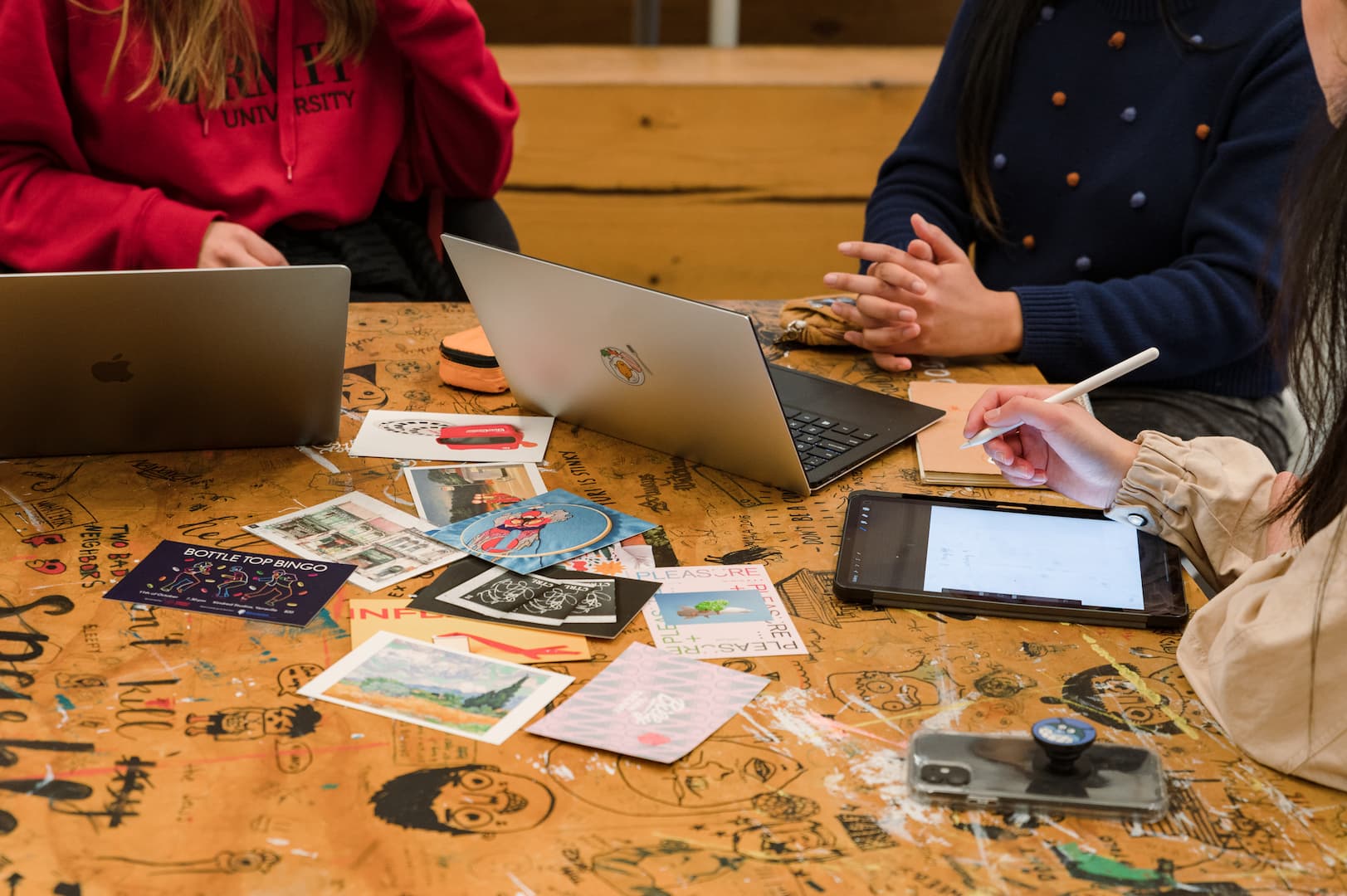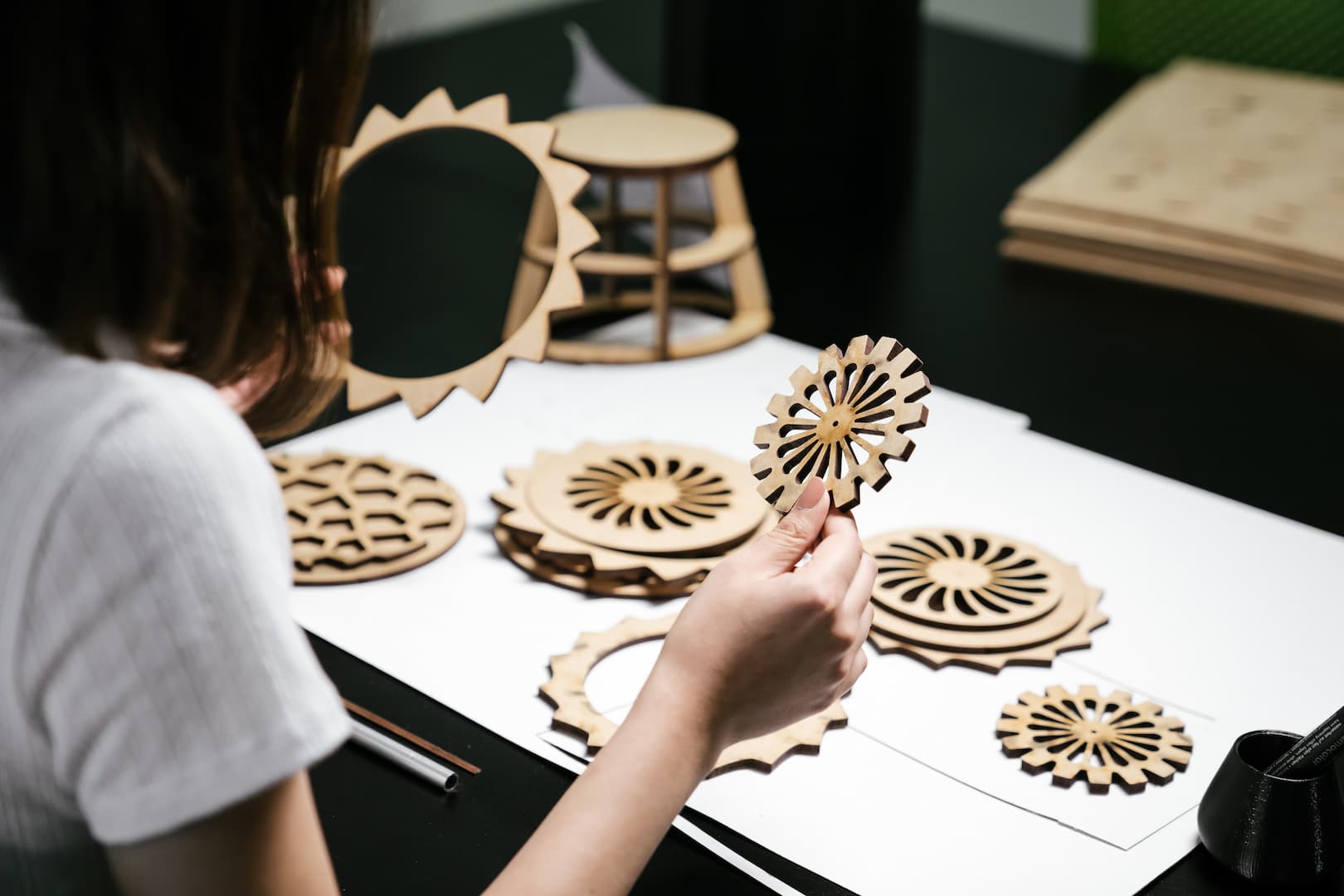TEXT ON SCREEN: RMIT University presents
AUDIO: Sound of running vehicles.
VISUAL: Seen on screen is a road sign with text reads NEXT 110m, and next to it is a signage on a shop that reads HALAL KEBABS. Shown next is a kind of street light stand, a pedestrian pathway where there are people walking, a pedestrian traffic sign of a man on the go, a bus stop waiting station, and a man is shown with feet on the pedals as his bicycling on the side street.
VOICE OVER: Design is anything that is put in place with purpose, is eminent in the everyday life, in anything really.
AUDIO: Ambient instrumental music.
VISUAL: Façade of buildings shown, a bird is seen flying over the automobiles and people walking on the street.
VOICE OVER: The environment itself is a design for the inhabitants.
VISUAL: Young man in black suit, clutching his bag by his left hand, walks on the side street. The young man then faces the camera. He wears glasses.
VOICE OVER: I mean, without design, then we would be like a fish that is living in a birdcage.
VISUAL: Focus on the face of the young man. He looks up and turns his face slightly to the left side. Next in focus is the façade of the State Library of Victoria, Melbourne.
TEXT ON SCREEN: Fabio Hutagalung, Design Student at RMIT University
VISUAL: The young man with the glasses enters the scene. He carries what looks like a paper bag on his left hand as he walks across the State Library lawn towards RMIT.
VOICE OVER: My name is Fabio Hutagalung, and I come from Indonesia, and I’m studying Bachelor of Design (Communication Design) at RMIT.
VISUAL: Fabio enters RMIT, then his Design classroom and joins the other students in his class.
VOICE OVER: Prior to coming to Australia, I had no design experience at all. And that’s why I had to take the foundation studies at RMIT.
VISUAL: Fabio prints his design and examines it. Then he approaches and sits with his teacher. He listens attentively as his teacher shares feedback.
VOICE OVER: What I like about the teachers, they always challenge the way you think. They always want you to dig deeper into the brief and the issue. I learned about 3D Modelling, painting and also mixed media, drawing… These things became the foundation to my portfolio to get into my Bachelor of Communication Design at RMIT.
VISUAL: In focus is an art shop where different art collections are on display, for sale. Fabio enters the scene, looking into the window of a shop named Monster Threads.
VOICE OVER: One aspect of design that I’m really interested in...
VISUAL: Fabio is inside the shop holding a card. He feels the design on the card by passing his fingers through.
VOICE OVER: is the sensory aspect:
VISUAL: Fabio picks from the display a yellow flower, touches and smells it.
VOICE OVER: touch, smell...
VISUAL: Fabio picks up a bicycle bell and examines it. He tests the bell and it rings.
VOICE OVER: and visual...
VISUAL: Fabio looks at a miniature wooden design and examines it.
VOICE OVER: Everything just works together.
VISUAL: In focus is the signage RMIT University with white text, in black background, and red logo. Seen on screen is a design student’s work station, with the student working on a design project.
VOICE OVER: At the very heart of design is again-
VISUAL: Fabio is in his student’s design work station, working on his project.
VOICE OVER: whether it will enhance the consumer’s life.
VISUAL: Fabio continues working on his project. He makes a box, holds a small bottle labelled Eucalyptus. He holds something like a rolled white cloth, smells it and labels it Lavender. He artistically lays the Lavender label in the box, then places the labelled bottle in the box.
VOICE OVER: We can’t just do design without studying and understanding about human life-
VISUAL: Fabio shows his finished project, a packaging concept for hotel amenities.
VOICE OVER: about who we are.
AUDIO: Background instrumental music continues.
VISUAL: Buzzing Melbourne metropolis, different buildings, shops, a street crowded with pedestrians from all walks of life.
VOICE OVER: At the heart of a well-designed city is a good identity of what it is, of itself.
VISUAL: Fabio, clutching a black bag with his right hand, walks down the side street. He faces the camera and looks at the buildings and shops along the busy street.
VOICE OVER: I think the identity of Melbourne is sharing, that sense of sharing the identity with so many cultures; so many different people.
VISUAL: Next in focus is the building of the San Remo Ballroom. Fabio walks his way to the Ballroom.
VOICE OVER: When you are so far from your home country, and family, you will feel a bit lonely at times.
VISUAL: Fabio enters the Ballroom and enjoys the company of friends, eating and drinking.
VOICE OVER: And being a part of the RMIT Indonesia Student Society, I met so many different people, from different walks of life and different studies as well.
VISUAL: Fabio takes a beautiful lady partner and dances with her.
VOICE OVER: And I think it’s great to have a community of people around you, not just for networking and building on connections, but they also give you a sense of belonging.
AUDIO: Music fades out. People talking fades. Laughter and clapping of hands fades.
VISUAL: Screen color fades out into white.
TEXT ON SCREEN: RMIT UNIVERSITY



